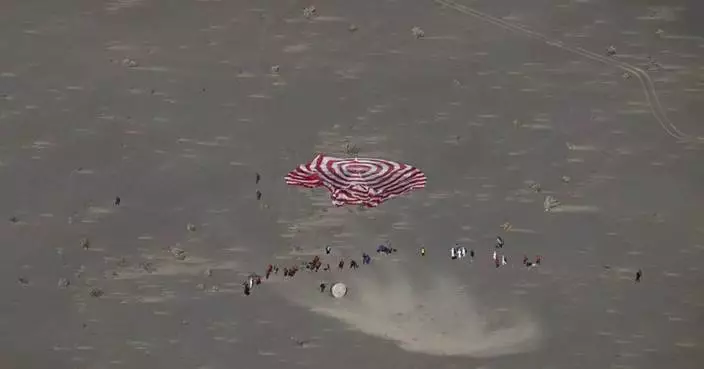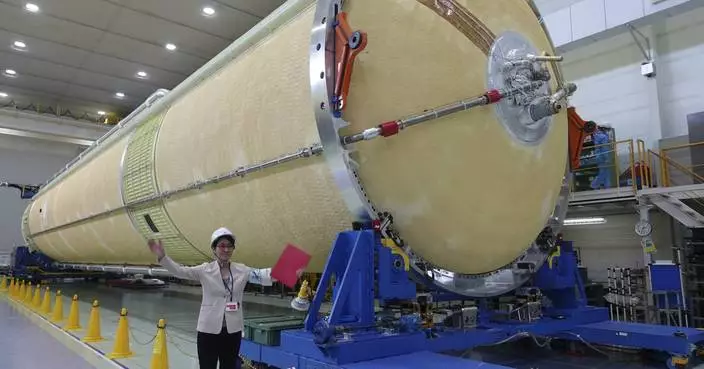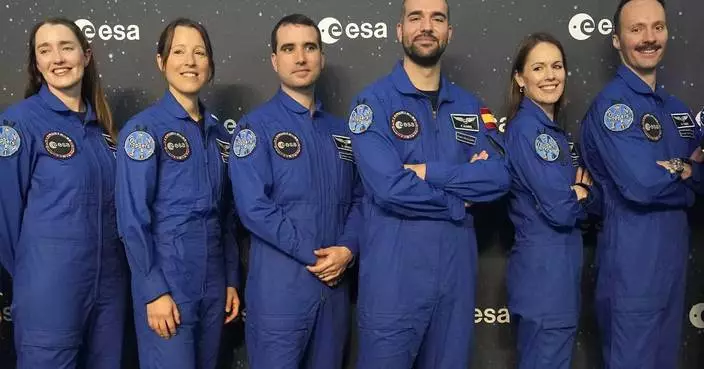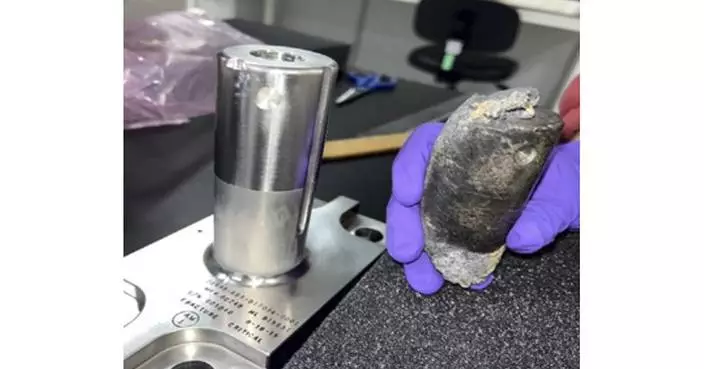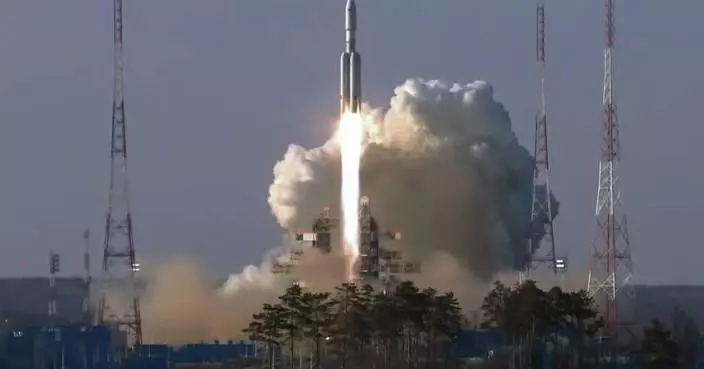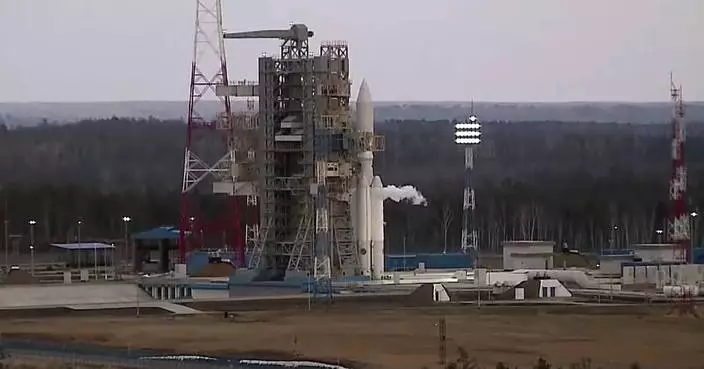Frozen samples exposed to microgravity appear to keep their characteristics.
A sperm bank could one day be set up in space, scientists have suggested.
Frozen samples exposed to microgravity conditions and those kept on the ground appear to retain similar characteristics, according to the results of a small preliminary study.
The findings suggest frozen sperm could be transported to space and “open the possibility of creating a human sperm bank outside of Earth”, the researchers said.
However, further work is needed to fully understand the effect of space conditions.
The study has been presented at the European Society of Human Reproduction and Embryology annual meeting in Vienna, Austria.
The researchers said little is known about the effect of different levels of gravity on sperm.
Dr Montserrat Boada, from Dexeus Women’s Health in Barcelona, said: “Some studies suggest a significant decrease in the motility of human fresh sperm sample.
“But nothing has been reported on the possible effects of gravitational differences on frozen human gametes, in which state they could be transported from Earth to space.”
The researchers used sperm from 10 healthy donors, exposing some of the samples to microgravity using a small aerobatic aircraft.
The samples were then analysed for concentration, motility and DNA fragmentation – tests which are all performed to check for fertility.
No significant differences were found between the samples kept on the ground and those exposed to microgravity, according to the study.
“The lack of differences observed in the sperm characteristics between frozen samples exposed to microgravity and those maintained in ground conditions open the possibility of safely transporting male gametes to space and considering the possibility of creating a human sperm bank outside of Earth,” the researchers said.
However they added that this is a preliminary study, and they need to validate their findings with more samples and expose the sperm to space-like conditions for longer periods of time.
“Our best option will be to perform the experiment using real spaceflight but access is very limited,” Dr Boada said.
UNITED NATIONS (AP) — Russia has circulated a U.N. resolution calling on all countries to take urgent action to prevent putting weapons in outer space “for all time” a week after it vetoed a U.S.-Japan resolution to stop an arms race in space.
The Russian draft resolution, obtained Wednesday by The Associated Press, goes further than the U.S.-Japan proposal, not only calling for efforts to stop weapons from being deployed in outer space but for preventing “the threat or use of force in outer space,” also “for all time.”
It says this should include deploying weapons “from space against Earth, and from Earth against objects in outer space.”
Russia’s U.N. Ambassador Vassily Nebenzia told the Security Council when he vetoed the U,S.-Japan draft that it didn’t go far enough in banning all types of weapons in space.
The vetoed resolution focused solely on weapons of mass destruction including nuclear arms, and made no mention of other weapons in space.
It would have called on all countries not to develop or deploy nuclear arms or other weapons of mass destruction in space, as banned under a 1967 international treaty that the U.S. and Russia ratified, and to agree to the need to verify compliance.
Before the U.S.-Japan resolution was put to a vote on April 24, Russia and China proposed an amendment that would call on all countries, especially those with space capabilities, “to prevent for all time the placement of weapons in outer space, and the threat of use of force in outer spaces.”
The vote was 7 countries in favor, 7 against, and one abstention and the amendment was defeated because it failed to get the minimum 9 “yes” votes in the 15-member Security Council required for adoption.
U.S. Ambassador Linda Thomas-Greenfield told the council after the vote that Russian President Vladimir Putin has said Moscow has no intention of deploying nuclear weapons in space.
“Today’s veto begs the question: Why? Why, if you are following the rules, would you not support a resolution that reaffirms them? What could you possibly be hiding,” she asked. “It’s baffling. And it’s a shame.”
Putin was responding to White House confirmation in February that Russia has obtained a “troubling” anti-satellite weapon capability, although such a weapon is not operational yet.
Russia’s U.N. Ambassador Vassily Nebenzia said after casting the veto that the U.S.-Japan resolution cherry picked weapons of mass destruction.
He said much of the U.S. and Japan’s actions become clear “if we recall that the U.S. and their allies announced some time ago plans to place weapons … in outer space.”
Nebenzia also accused the U.S. of blocking a Russian-Chinese proposal since 2008 for a treaty against putting weapons in outer space.
Thomas-Greenfield accused Russia of undermining global treaties to prevent the spread of nuclear weapons, irresponsibly invoking “dangerous nuclear rhetoric,” walking away from several of its arms control obligations, and refusing to engage “in substantive discussions around arms control or risk reduction.”
Much of the Russian draft resolution is exactly the same as the U.S.-Japan draft, including the language on preventing an arms race in space.
It calls on all countries, especially those with major space capabilities, “to contribute actively to the objective of the peaceful use of outer space and of the prevention of an arms race in outer space.”
Thomas-Greenfield said the world is just beginning to understand “the catastrophic ramifications of a nuclear explosion in space.”

FILE - U.S. Ambassador to United Nations Linda Thomas-Greenfield speaks on Thursday, April 18, 2024, in Tokyo. The U.N. Security Council is set to vote Wednesday, April 24, 2024, on a resolution announced by Thomas-Greenfield, calling on all nations to prevent a dangerous nuclear arms race in outer space. It is likely to be vetoed by Russia. (AP Photo/Eugene Hoshiko, Pool, File)




